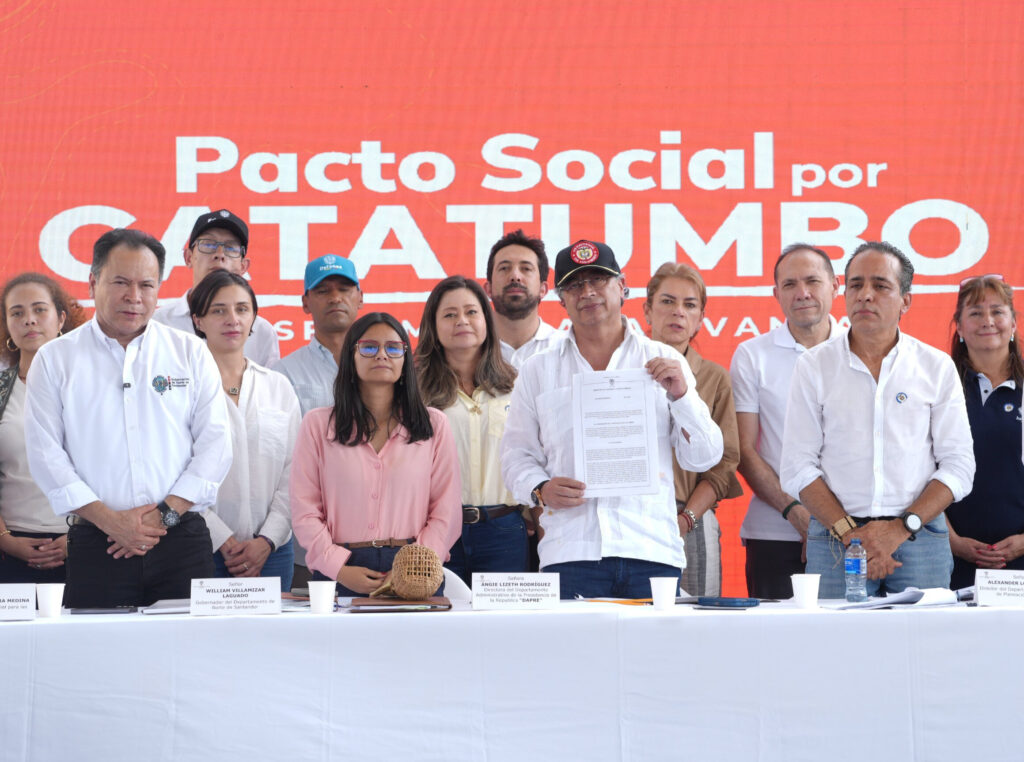
Cúcuta, Colombia – Multiple senior politicians representing Norte de Santander, home to the embattled Catatumbo region, have opposed the extension of a state of emergency in the conflict zone.
President Gustavo Petro declared a State of Internal Commotion on January 20, 2025, in response to clashes between the National Liberation Army (ELN) and the Frente 33, a FARC dissident group.
The decree is due to expire on April 24 but can be extended after 90 days with Senate approval. It is unclear whether Petro will seek to lengthen the mandate.
Petro declared a state of emergency in response to what has been described as Colombia’s worst humanitarian crisis in a decade.
Official figures report 57,000 people displaced and 86 confirmed dead but government officials estimate fatalities to be in excess of 300.
The constitutional measure allows the president to allocate resources in times of emergency and the government introduced new taxes on betting and fossil fuels to raise funds for Catatumbo. It also deployed some 10,000 uniformed police and soldiers to the region.
Despite the extraordinary measures, local politicians say that the region has not materially benefited from the decree.
“Nothing has arrived. No assistance. Humanitarian assistance at the beginning… but the internal commotion says that they are going to build hospitals, that they are going to improve the roads, that they are going to put in more men to be able to provide security,” Luis Niño, High Advisor for Peace in Norte de Santander, told The Bogotá Post.
He criticized the empty promises of the government which has failed to deliver institutional development or security to the region. Displacement and death continues in Catatumbo despite the measures.
“If it did not work in the first 90 [days], I do not think it will work in the next 90,” said Niño.
Other politicians from Norte de Santander have also spoken out against extending the state of emergency.
Liberal Party Senator Alejandro Chacón told Colombian newspaper El Nuevo Siglo that there was no point in continuing the state of exception.
“I do not agree with the extension, I do not think it is necessary, there was no form of solution following the exceptional measures that were taken,” said Chacón.
Conservative Party Senator Juan Carlos García also opposed extending the State of Internal Commotion.
Instead, the politicians suggested that the government supports its proposed ‘Pact for Catatumbo’, a long-term investment plan that hopes to tackle the roots of violence — underdevelopment and an absence of state institutions.
“This is not going to happen tomorrow, nor in 90 days, but the resources would be provided so that it can be achieved in five years,” said Niño.
The plan includes the construction of a university in Catatumbo and coca crop substitution.
But the proposal lacks concrete support from the government, which has only granted 1.2% of the necessary funds according to Niño.
In January, Petro became the first president to invoke the constitutional clause since former President Álvaro Uribe’s tenure (2002-2010).
But his declaration was met with controversy and the country’s Constitutional Court is due to rule whether the decree and the individual measures within it are legal or not before May 5.




